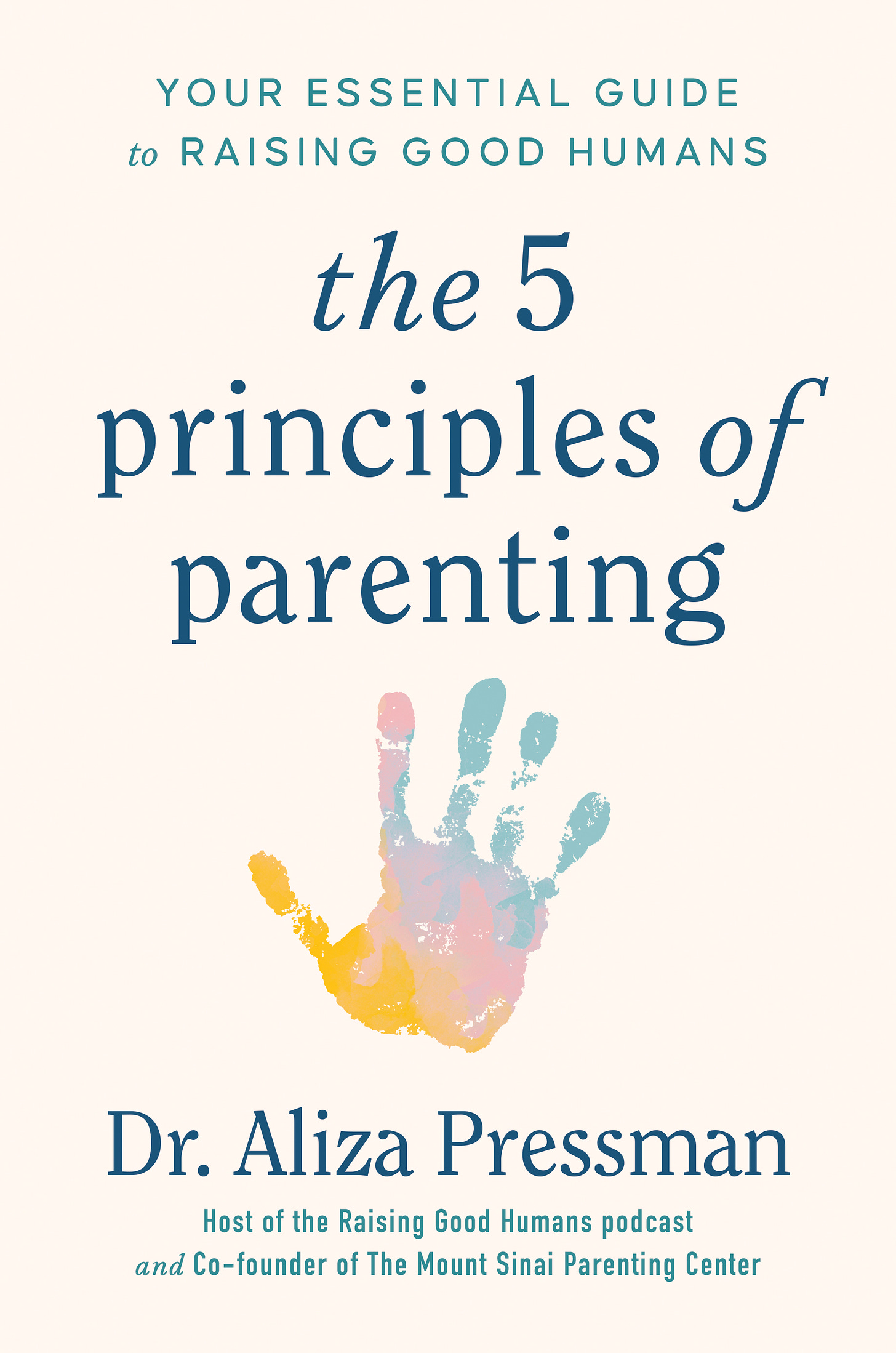Thanks for reading Raising Good Humans on Substack! My first book, The Five Principles of Parenting: Your Essential Guide to Raising Good Humans is now available for purchase here.

I’m revisiting an episode from Season 1, where Claire Lerner and I talk about how to explain divorce to young children. This was a personal episode for us because we are both in the field of child development and both have been through divorce. We've experienced this. And while we discussed the research, we did so with the understanding that nobody sets out to have this happen. Sometimes divorce is the healthiest thing we can do for our families, and yet that doesn’t make it easier for us to support our kids.
What does help is remembering that the true downsides to divorce come from our adult behavior and the act of divorce itself. While it is challenging and it is painful, we can control our behavior, we can learn and grow, and we can support our children in real ways. Our relationship with our children is protective of the adversity they may face (like divorce), and the buffering impact of that relationship really, really, really, matters.
Here are some things to consider around delivering this difficult news to our kids:
Get your own emotions in check. This is a tall order and also, you can do it. You cannot have this conversation (or the many more after it) without making sure that you can self regulate. Try these quick steps to find the passcode to your internal alarm system. Your kids need to know that you are able to manage and care for yourself and your feelings.
Your child is going to pick up on your tone, facial expressions, and affect as much as they are to your words.
Claire Lerner
Be concrete. Young children don’t have abstract thinking, and they need information to be clear and relatable. It might be something as simple as, “Mommy and daddy have decided to live in different houses. We love you very, very much. We will always love you and take very good care of you, but it will be in separate homes.”
If you have a kid who you think isn't dealing with it or talking to you about it, it's because they're centered in their own life. That’s OK. That may mean you’re keeping their life fairly stable and that they will ask you questions as needed.
Dr. Aliza Pressman
Stop and follow your child’s lead. Even though we may be anxious to over-explain (it likely makes us feel better), it's not helpful for our children. We need to give them time to process the information and take our cues from their reaction, and their questions. Depending on our children’s ages, they may have more or fewer questions at the moment or as the days pass.
Regardless of our children’s age, we do so much projecting of our own feelings onto our kids. We imagine what we think this means to them, and we assign that meaning. Then we react to a situation based on what we think, and not necessarily what our children are feeling or processing.
Claire Lerner
Try to be on the same page as your partner, though sometimes this is not possible. It is so helpful for parents to present a united front in these first, hard conversations (and beyond that if possible). If we can put aside the hurt, the anger, and the sadness, we can find a way to make this process one step better for our children.
You can override the initial mayhem that's going on inside of you both, and try to move forward with this difficult decision in a way that doesn't have you looking back thinking, “Oh my God, what have we done?”
Dr. Aliza Pressman
Share your emotions in a way that is genuine for your kids. It is OK for our children to see us be sad, be vulnerable, be heartbroken - as long as they know that we can take care of ourselves and we can take care of them. Maybe you say something like, “This is a really big change in our family, and we're all working through it. I can feel sad, but I'm still strong and I know what to do when I feel sad. I'm still going to take care of you and you can talk to me about anything.” We can’t help that we may cry in this conversation (or in the future), but we can show our children that they are not our therapists, they are not our friends, and that we know how to get through these hard moments in a healthy way.
You can both be vulnerable and strong. Those two states can coexist.
Claire Lerner
REPAIR, because you will make mistakes and you deserve to forgive yourself and give yourself grace. Remember the experience of tolerable stressors in the presence of a stable, loving caregiver is a pathway to resilience.
A quick reminder to buy my first book, The Five Principles of Parenting, and write a review from wherever you order. Reviews really help to get the book noticed, and to spread the word. Please especially rate and review any books purchased on Amazon (it shockingly really, really matters!). Also, when you receive the book, snap a quick pic with it and post on social media. Share one thing you love about it and help me to get more copies into the hands of parents in your community. Tell a friend about the book, or about something you found helpful in the book. Parents look to each other for advice, and I’d love to be a part of the support you pass on to your loved ones.





